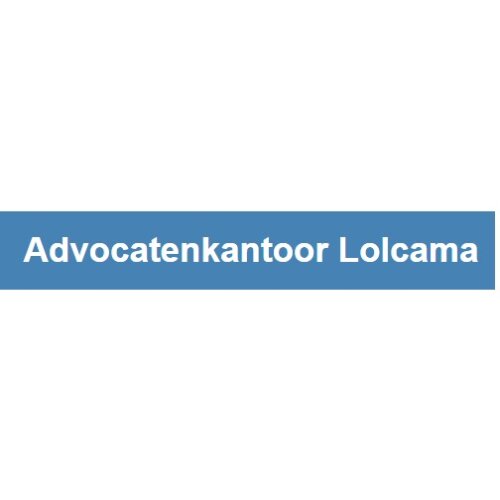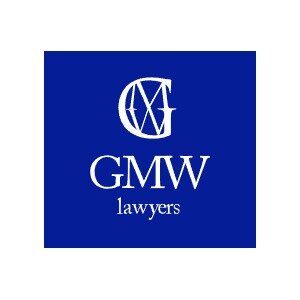Best Debt Capital Markets Lawyers in The Hague
Share your needs with us, get contacted by law firms.
Free. Takes 2 min.
List of the best lawyers in The Hague, Netherlands
About Debt Capital Markets Law in The Hague, Netherlands
Debt Capital Markets (DCM) form an essential part of the financial services sector in The Hague, Netherlands. This area of law primarily involves the issuance, trading, and structuring of debt instruments such as bonds, notes, and other fixed-income securities. DCM professionals support corporations, financial institutions, and public entities as they seek to raise funds from various investors using debt instruments rather than equity. The Hague, being a key legal and political center in the Netherlands, is home to many law firms and financial experts specializing in this dynamic sector.
Why You May Need a Lawyer
Debt Capital Markets transactions can be complex and highly regulated. There are several common situations in which legal advice is crucial, such as:
- Issuing bonds or other debt securities for the first time
- Structuring new or innovative debt products
- Navigating Dutch and European securities regulations
- Drafting and negotiating offering circulars, prospectuses, and legal documentation
- Conducting due diligence for cross-border transactions
- Dealing with defaults, restructurings, or insolvency scenarios
- Managing relationships with regulatory authorities
Whether you are an issuer, an investor, or an intermediary, a specialized lawyer can help mitigate risks, ensure compliance with all legal requirements, and optimize your transaction structures.
Local Laws Overview
The legal landscape for Debt Capital Markets in The Hague is influenced by both Dutch law and European Union regulations. Key aspects include:
- Financial Supervision Act (Wet op het financieel toezicht - Wft): This comprehensive legislation governs financial markets, securities issuance, and conduct rules in the Netherlands.
- Prospectus Regulation: European Union rules require detailed disclosures for public offerings of securities, with additional Dutch requirements enforced by the Netherlands Authority for the Financial Markets (AFM).
- Listing Rules: If listing on Euronext Amsterdam or another regulated market, specific listing rules and disclosure obligations must be met.
- Anti-Money Laundering and Counter-Terrorism Financing Laws: These impact the due diligence and investor screening processes.
- Cross-Border Considerations: For issuers or investors outside the Netherlands, additional EU and international securities regulations may apply.
Legal advice is critical to interpret these overlapping sets of laws, especially as regulations may be updated or subject to European court judgments.
Frequently Asked Questions
What is considered a debt security in the Netherlands?
A debt security is a financial instrument that represents borrowed money which must be repaid, typically with interest, such as bonds, notes, or debentures. In the Netherlands, these are regulated under the Financial Supervision Act and EU Securities regulations.
Who regulates Debt Capital Markets in The Hague?
The Netherlands Authority for the Financial Markets (AFM) is the main regulator overseeing securities offerings, market conduct, and compliance with disclosure obligations. The Dutch Central Bank (DNB) also has an oversight role for financial stability.
Is a prospectus always required for issuing debt securities?
A prospectus is generally required for public offerings of debt securities unless an exemption applies, such as private placements or offers to qualified investors only. Legal counsel can help determine whether your offering requires a prospectus.
What are the key compliance steps when issuing bonds in the Netherlands?
Key compliance steps include preparing the prospectus, obtaining approval from the AFM, ensuring investor disclosures, meeting listing requirements if relevant, and adhering to anti-money laundering laws.
Can foreign companies issue debt securities in The Hague?
Yes, foreign companies can access Dutch capital markets, but must comply with Dutch and EU regulations, including documentation and disclosure standards. Local legal support is highly recommended.
What happens if an issuer defaults on a debt security?
If an issuer defaults, there are legal procedures for creditor claims, restructurings, or possibly insolvency proceedings. The rights of investors depend on the terms of the debt instruments and applicable Dutch insolvency laws.
How does EU law affect Debt Capital Markets in the Netherlands?
EU law has a significant impact, especially in areas like prospectus requirements, market abuse, and cross-border trading. Dutch regulations are aligned with EU frameworks but may also impose additional local requirements.
What are typical legal fees for DCM legal services in The Hague?
Legal fees can vary widely depending on the size and complexity of the transaction. Some law firms charge hourly rates, while others may offer fixed fees for standard services. Always request a clear fee agreement before starting work.
Do I need Dutch counsel if I already have a lawyer abroad?
While your foreign lawyer can provide helpful advice, for Dutch or EU-specific regulatory, compliance, and documentation matters, it is highly advisable to engage local Dutch counsel for advice tailored to the jurisdiction.
How long does it take to complete a bond issuance in The Hague?
The timeline can range from a few weeks for straightforward or repeat issuances, to several months for more complex offerings or first-time issuers. Regulatory reviews and approval processes are significant factors impacting timing.
Additional Resources
For further information and support related to Debt Capital Markets in The Hague, you may find the following resources helpful:
- Netherlands Authority for the Financial Markets (AFM) - The primary regulatory authority for capital markets
- Dutch Central Bank (De Nederlandsche Bank - DNB) - Regulatory supervision of financial institutions
- Euronext Amsterdam - The Dutch stock exchange for information on listing rules and procedures
- Netherlands Bar Association - For finding qualified financial and DCM lawyers
- European Securities and Markets Authority (ESMA) - Updates on EU-wide regulations affecting debt capital markets
Next Steps
If you require legal assistance in the field of Debt Capital Markets in The Hague, take the following steps:
- Define your needs - Are you issuing, investing, or structuring debt products?
- Gather all relevant transaction documents and background information
- Research and shortlist law firms or legal specialists experienced in DCM in The Hague
- Arrange an initial consultation to discuss your goals and request advice on fees and timelines
- Engage qualified legal counsel before making any binding commitments or disclosures in the market
A proactive approach and timely legal guidance can help you navigate the regulatory framework, protect your interests, and ensure a successful Debt Capital Markets transaction in The Hague, Netherlands.
Lawzana helps you find the best lawyers and law firms in The Hague through a curated and pre-screened list of qualified legal professionals. Our platform offers rankings and detailed profiles of attorneys and law firms, allowing you to compare based on practice areas, including Debt Capital Markets, experience, and client feedback.
Each profile includes a description of the firm's areas of practice, client reviews, team members and partners, year of establishment, spoken languages, office locations, contact information, social media presence, and any published articles or resources. Most firms on our platform speak English and are experienced in both local and international legal matters.
Get a quote from top-rated law firms in The Hague, Netherlands — quickly, securely, and without unnecessary hassle.
Disclaimer:
The information provided on this page is for general informational purposes only and does not constitute legal advice. While we strive to ensure the accuracy and relevance of the content, legal information may change over time, and interpretations of the law can vary. You should always consult with a qualified legal professional for advice specific to your situation.
We disclaim all liability for actions taken or not taken based on the content of this page. If you believe any information is incorrect or outdated, please contact us, and we will review and update it where appropriate.










